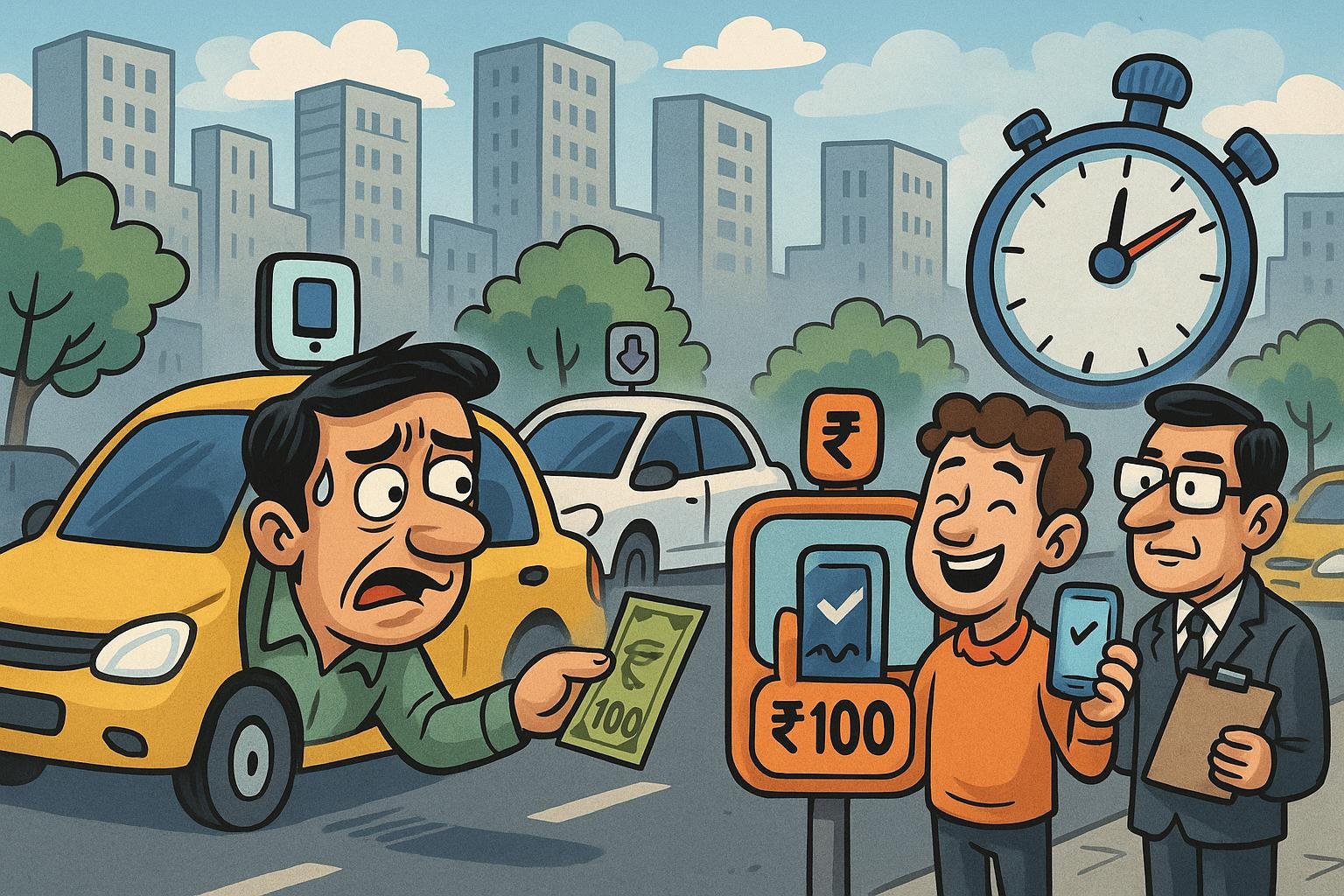The Maharashtra government has introduced the Aggregator Cabs Policy 2025. The new framework puts customer protection and fare transparency front and center mandating fines for driver cancellations, capping surge pricing, and regulating discounts. Here’s how it changes the game for riders, drivers, and platforms like Uber and Ola.
Riders to Get Instant Compensation on Driver Cancellations
Under the new Aggregator Cabs Policy 2025, approved by the Maharashtra Cabinet, drivers who cancel confirmed rides will face a financial penalty — a first-of-its-kind measure in India’s app-based transport sector. The penalty will be INR 100 or 10% of the fare, whichever is lesser, and must be credited immediately to the rider’s digital wallet or payment source.
This move aims to tackle a longstanding pain point for passengers: drivers cancelling rides for arbitrary reasons, especially after learning the destination. With passenger grievances piling up over cancelled trips and wasted time, the policy is expected to increase accountability among drivers and encourage platforms to better enforce ride commitments.
Transport ministry officials clarified that ride cancellation penalties are not optional and will be monitored through the state’s proposed Aggregator Compliance Monitoring Cell.

Surge Pricing Capped at 1.5x, Discounting to Be Regulated
In another major intervention, the policy sets limits on fare manipulation, capping surge pricing at a maximum of 1.5 times the base fare — a ceiling meant to prevent exploitation during high-demand periods. Simultaneously, discounts during off-peak hours are allowed but cannot exceed 25% of the base fare, thus discouraging predatory pricing tactics that smaller operators often cannot match.
By regulating both ends of the pricing spectrum — peak-time surges and non-peak discounts — the policy aims to level the playing field between large aggregators and smaller fleet operators. It also curbs the deep-discounting model used to undercut competition and acquire market share, which has led to long-term volatility and unsustainable fare structures.
Analysts say this could stabilize the market, ensuring more consistent earnings for drivers and predictable fare ranges for passengers.
ALSO READ: Call for Cyber Experts: Join FCRF Academy as Trainers and Course Creators
Cab Aggregators Under Stricter Regulatory Watch
The 2025 policy signals a shift from a largely laissez-faire approach to a more hands-on regulatory stance. Apart from pricing and cancellation reforms, the policy includes:
- Mandatory real-time grievance redressal systems
- Licensing renewals tied to compliance history
- Driver background checks and periodic training
- Clear terms of commission percentages between aggregators and drivers
The Maharashtra government will also set up a Monitoring and Enforcement Unit to ensure aggregators like Uber, Ola, and Rapido comply with these new norms. Non-compliance could lead to penalties or suspension of operational licenses.
Government officials say the goal is to create a balanced and safe ride-hailing ecosystem — one where riders feel protected, drivers are treated fairly, and aggregators operate transparently.
Industry Response & Future Outlook
Cab aggregators have expressed mixed reactions. While some welcomed the clarity in fare regulation, others raised concerns about implementation challenges and potential impact on driver flexibility.
An Uber spokesperson said, “We support policies that protect rider interests and provide drivers with steady incomes. We are studying the new framework and will work closely with the Maharashtra government to ensure smooth compliance.”
Experts believe that other Indian states may follow suit, making Maharashtra’s 2025 policy a potential blueprint for nationwide reform. The move is also seen as aligning with the Central Government’s ongoing push to regulate digital marketplaces.




